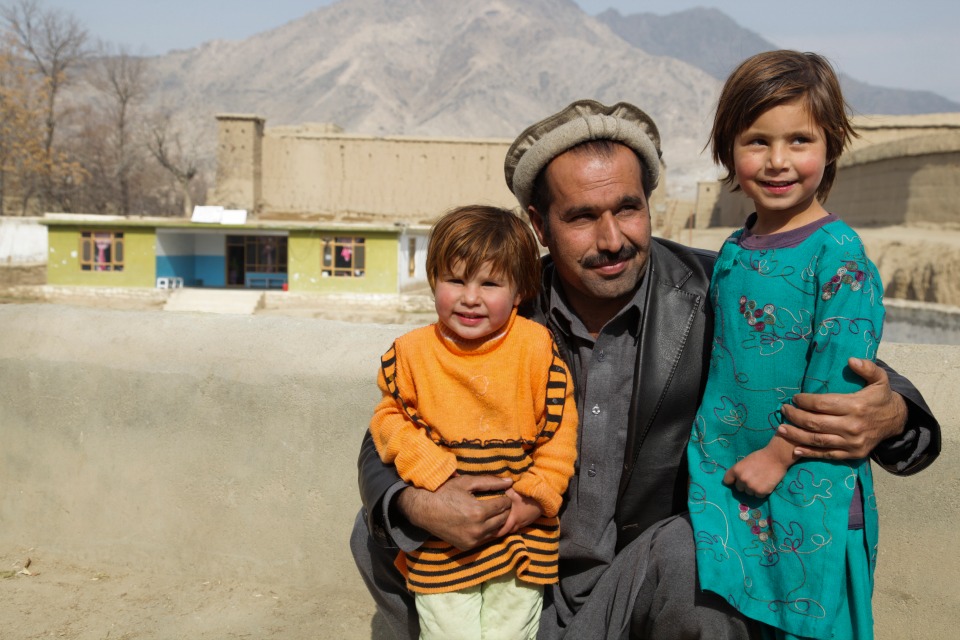"2014 is a year full of opportunity for Afghanistan"
Statement by UK Ambassador Lyall Grant of the UK Mission to the UN, at the Security Council Quarterly Debate on Afghanistan

Thank you, Madam President.
I would like to thank the Secretary-General for his report and to thank Special Representative Jan Kubiš for his briefing today. Ambassador Tanin, thank you also for your remarks this morning.
This is the first opportunity for this Council to express, directly to Special Representative Kubiš and his team, the sadness that we all felt at the tragic loss of the lives of four UN colleagues on 17 January. This appalling attack was a stark reminder of the dangers that international civilian staff face and we pay tribute to your efforts Mr Kubiš and to the efforts of your team in Afghanistan.
Madam President,
The United Kingdom welcomes the adoption of today’s resolution renewing the mandate of UNAMA. UNAMA plays a vital role in peacebuilding in Afghanistan and will continue to do so in 2014.
I will focus my statement today on four key areas: security; elections; the Tokyo Mutual Accountability Framework; and the UN’s future engagement in Afghanistan.
First, the security situation.
We should be proud of our achievements. The determination and dedication of ISAF and the Afghan National Security Forces have allowed the Government of Afghanistan to build the foundations of a stable and democratic country.
The ANSF has risen to difficult challenges since taking full responsibility for Afghanistan’s security in June 2013, and we are encouraged by polling that shows growing confidence in their work. In June of this year, we expect the first all female cohort of Officer Cadets to commence training. And this is another significant achievement.
However, we know that the support of NATO and the international community will continue to be vital in ensuring long-term security in Afghanistan. As a sign of our enduring commitment, the United Kingdom will contribute over $100 million a year until at least 2017 towards sustaining the Afghan National Security Forces.
The United Kingdom also looks forward to hosting the NATO Summit later this year, providing the international community with an opportunity to reflect on ISAF’s legacy and to set out NATO’s post 2014 engagement in Afghanistan.
Second, elections and the political transition.
Afghanistan is entering the final phase of campaigning and technical preparations for elections. The Presidential and Provincial Council elections are now less than four weeks away. This is truly a groundbreaking moment in Afghan politics as Afghanistan moves into its ‘Transformation Decade’.
Latest figures show that over a third of those taking part in top-up voter registration are women. That is good news and will contribute to the inclusiveness of these elections. The United Kingdom has pledged $11 million to build the capacity of the women elected to Provincial Councils next year, to ensure that their voices are heard in the democratic process.
Transparency and inclusiveness are vital to ensuring the credibility of these elections. In this regard, we welcome the recent decision of the European Union to send an Election Assessment Team to Afghanistan.
The United Kingdom encourages the government of Afghanistan to give all election observers the access they need to the electoral process, so that when the time comes, they can provide informed reports on the process.
Third, the next steps on the Tokyo Mutual Accountability Framework.
The TMAF agreed in 2012 remains the blueprint for the international community’s development efforts in Afghanistan.
Progress in priority areas, such as the role of women, is essential for long-term development and to sustain donor funding. We encourage UNAMA to assist in monitoring, co-ordinating, and reporting on progress over the coming months, as requested in the Resolution we have adopted today.
The United Kingdom looks forward to co-chairing with the Afghan Government, the Development Conference later this year, which will be an opportunity for the international community to assess progress against the Framework and set our ambition for the future.
Finally, Madam President,
The United Kingdom firmly supports a strong UN presence in Afghanistan. The UN will have an essential role, next year, working with the Government of Afghanistan to lock-in the gains made by the international community over the last decade.
We want the UN to have the resources it needs to enable a country-wide presence and carry out its responsibilities in line with the mandate endorsed today. But we urge the UN and its agencies to work more closely together, share resources and work with NATO and other relevant organisations, to spot the opportunities and tackle the challenges of the post 2014 environment.
One of the main challenges for Afghanistan and indeed the work of the UN are human rights, specifically the rights of women and girls. Women and girls in Afghanistan continue to face huge challenges and the gains made are fragile. We encourage the UN, to continue working closely with the Government of Afghanistan, international partners and civil society to improve the status of women and girls.
Madam President,
Afghans are taking charge of their security and their democracy. Afghanistan is changing fast, with a growing economy, a young population, and a revolution in access to the outside world through social media.
And so, despite the many challenges, 2014 is a year full of opportunity for Afghanistan. We pledge to continue our support to the government of Afghanistan as it seeks to build a more peaceful, democratic and prosperous future for all Afghans.